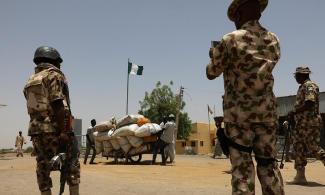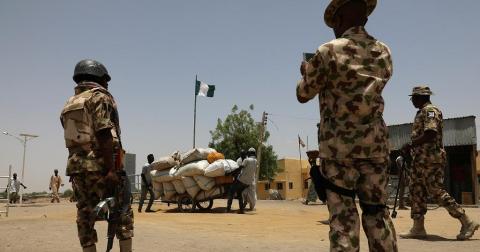
This year alone, INGOs along with other stakeholders including the
government, UN, national and local civil society have provided
critical and life-saving assistance to almost 3.8 million civilians
most affected by the 10-year conflict.

The Nigerian INGO Forum, a platform of 50 international non-government
organizations, has welcomed with the announcement that Action Against
Hunger (AAH) and Mercy Corps suspension of operations that have been
ongoing for over a month has now been temporarily lifted by federal
the government on Wednesday.
A statement by INGO forum quoted acting Director of Nigeria INGO
Forum, Jubril Shittu, saying the NGOs can start rendering humanitarian
assistance to vulnerable people in Borno.
He noted that NIF member organizations work according to international
regulations, national laws and local regulations, are duly registered
in Nigeria through the Ministry of Budget and National Planning, and
copies of INGO registration are shared with and acknowledged by the
mandated bodies of the respective State governments.
"The INGO community recognizes the role of the Nigerian government in
leading the humanitarian effort to support its most vulnerable
citizens and will support all efforts to do so. We reaffirm that we
are fully committed to working with Nigerian authorities and welcome
an open dialogue to clarify any concerns they may have about NGOs.
"Mobilising more local action to better serve the communities is
imperative, and INGOs are increasingly investing resources to support
their local and national counterparts.
"Through a press release from the Ministry of Humanitarian Affairs,
Disaster Management and Social Development, INGOs are pleased with the
announcement that Action Against Hunger (AAH) and Mercy Corps
suspension of operations that has been ongoing for over a month has
now been temporarily lifted. This will ensure that life-saving
activities can soon resume.
"All member organizations provide necessary reports and remain
accountable to the established systems and processes. INGOs also
implement mitigation measures, including eligibility and compliance
checks, internal controls for tenders, segregation of duties, asset
verification, authority approval procedures, periodic internal and
external audits, and engage community feedback mechanisms.
"INGOs also engage in the existing civilian-military coordination
mechanisms and notification procedures for cash, staff and cargo
movements with the relevant bodies.
"INGOs remain committed to upholding the humanitarian principles of
humanity, neutrality, impartiality, independence, international
humanitarian law as well as Nigerian legislation so that life-saving
assistance will continue to reach the most vulnerable populations in a
timely, efficient and effective way," he said.
During his two-day visit to Nigeria, International NGOs met with the
United Nations Under-Secretary-General for Humanitarian Affairs and
Emergency Relief Coordinator, Mark Lowcock, to discuss ways to
continue an effective and efficient response in challenging
circumstances.
This year alone, INGOs along with other stakeholders including the
government, UN, national and local civil society have provided
critical and life-saving assistance to almost 3.8 million civilians
most affected by the 10-year conflict.
More than 2.1 million people have been reached with food assistance,
and some 187,360 severely malnourished children were treated in
facilities supported by government and humanitarian organizations. The
humanitarian community has responded to rapid and multiple
displacements, ensuring that the lives and dignity of the vulnerable
population can continue to be provided for.
While development efforts in the north-east are absolutely necessary,
and to which we have been committed to in Adamawa, Yobe and parts of
Borno states, the context in other parts of Borno state necessitates
populations to receive lifesaving assistance. Over 140,000people have
been forced to flee in Borno so far this year, most of whom required
rapid humanitarian assistance.